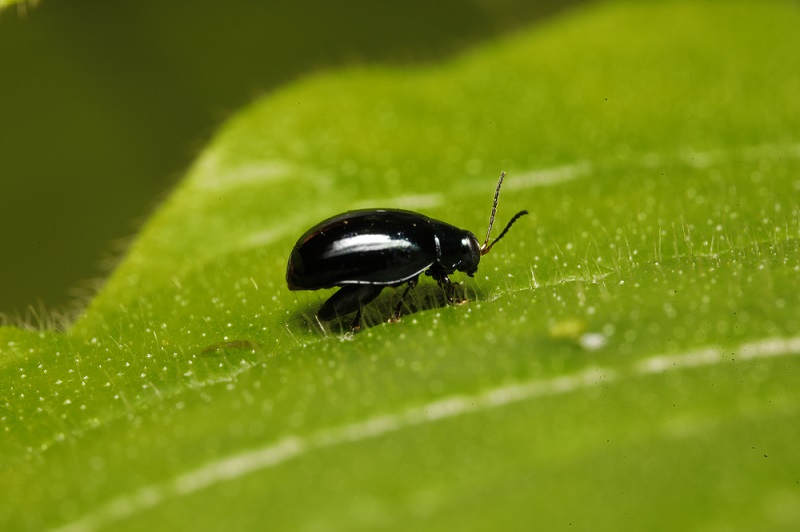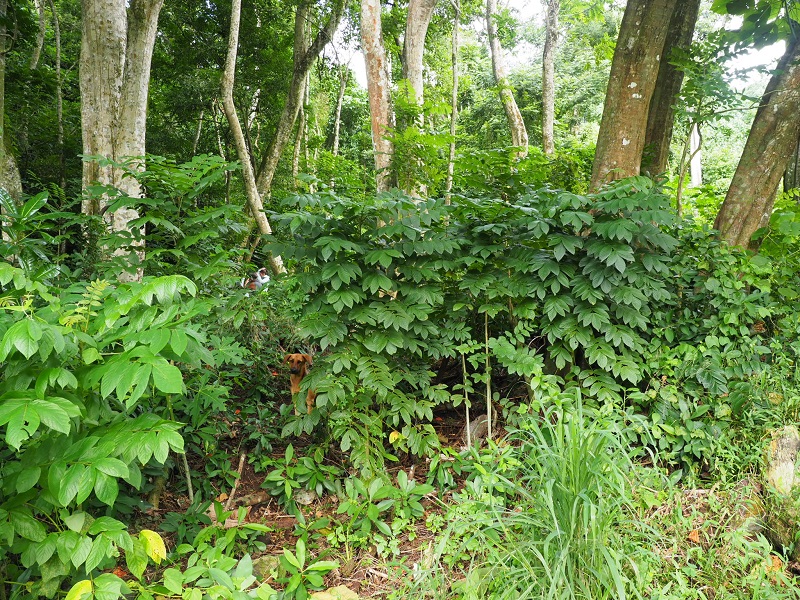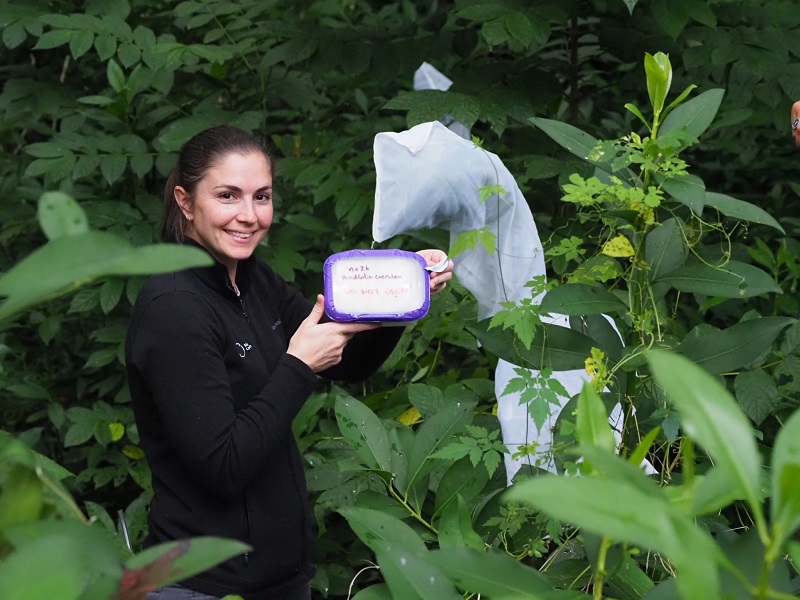
The African tulip tree flea-beetle, Paradibolia coerulea, made it into quarantine in New Zealand in February 2021 and has now been released on the Pacific island of Rarotonga. African tulip tree, Spathodea campanulata, is indigenous to Central and West Africa but has become a serious invasive alien in the Pacific Islands. Many of the islands in the Pacific have unique biodiversity that is threatened by dense infestations of African tulip tree as the tree forms dense stands that exclude indigenous plants and animals. The CBC in collaboration with LandCare Research New Zealand has been working to try and control African tulip tree on the island of Rarotonga, which is part of the Cook Islands. The Cook Island authorities granted permission for the release of a biological control agent, the flea-beetle that feeds on the leaves of African tulip tree. The flea-beetle was collected in Ghana with the help of researchers from CSIRO and imported into quarantine in South Africa at the CBC where host specificity testing was conducted. This testing showed that the flea-beetle is an African tulip tree specialist that will not feed on any other plants that are found on Rarotonga and is therefore safe to release as a biological control agent. Getting the flea-beetle to Rarotonga has proven to be very difficult, especially because of travel restrictions due to the COVID-19 pandemic, but in February a consignment of the beetle arrived in New Zealand in good condition and was kept under strict quarantine conditions until this month where it was safely transported to the Cook Islands. This was the last part of a long journey that started way back in 2009 in Ghana.
A few days after the release, the beetles seem to be doing well in their new home. They will be monitored and if the agent successfully controls the African tulip tree on Rarotonga, then there are many other Pacific Islands that could benefit from releasing this agent.

African tulip tree forming a dense thicket in the understory of a forest in Rarotonga, this is one of the release sites

Stephanie Morton of LandCare Research NZ releasing the new biocontrol agent in Rarotonga.
